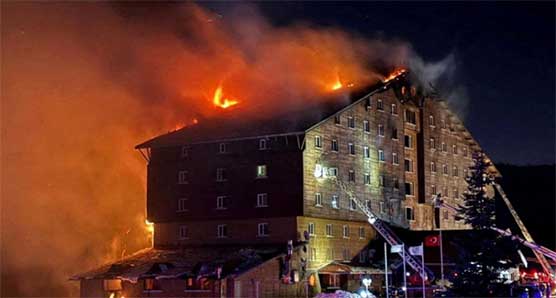
Turkey’s western wildfire on Sept 1 burned 200+ homes, killed 2, and evacuated 5,000. Fanned by 85km/h winds, firefighters battle flames with planes and helicopters amid extreme heat.
Izmir, Turkey, Oct. 5 – What began as a small blaze in western Turkey on September 1 quickly erupted into a catastrophic wildfire,吞噬ing homes, forcing thousands to flee, and leaving two people dead. The disaster, fueled by scorching heat and ferocious winds, has become the latest example of how extreme weather is turning fire seasons into national emergencies— and social media has been flooded with harrowing accounts from those caught in the chaos.
The Blaze Unfolds: From Cable Fault to Community Crisis
Authorities traced the fire’s origin to a cable fault in the coastal town of Ildır, near the popular tourist hub of Izmir, shortly after noon on September 1. Within hours, dry vegetation and winds gusting up to 52 mph (85 km/h) turned a manageable incident into an inferno. “It spread like gasoline on a match,” a local police officer told reporters. “One minute we’re warning neighbors, the next the sky is orange.”
By dusk, flames had reached residential areas in the nearby villages of Çeşme and Alaçatı, historic communities known for their whitewashed houses and olive groves. Videos shared on Twitter showed families piling into cars with just a suitcase, while others carried elderly relatives to safety. “We left everything—photos, my grandmother’s jewelry, our cat,” one evacuee wrote in a viral post. “You don’t think twice when the fire’s that close.”
The Human Toll: Lives Lost and Communities Displaced
The fire’s tragic cost became clear by September 2. Turkey’s Agriculture and Forestry Minister İbrahim Yumaklı confirmed two deaths: an 81-year-old bedridden man who couldn’t evacuate in time, and a forestry worker killed while fighting the flames in the Ödemiş district. A truck driver was also hospitalized with severe burns, adding to the heartbreak.
Local officials said approximately 5,000 people were evacuated from at least six villages, with schools and community centers converted into emergency shelters. “Shelters are packed—we’re distributing water, blankets, and baby formula as fast as we can,” a Red Crescent volunteer told local media. On Facebook, #SaveIzmir trended as Turks and international observers donated to relief funds, highlighting how social media has become a lifeline during such crises.
Firefighters Battle Nature: A Daunting Fight Against Winds
Turkey’s fire department has thrown everything at the blaze, deploying 6 fire-fighting planes, 16 helicopters, and dozens of bulldozers to carve firebreaks. But the weather has made their job nearly impossible. “Winds are changing direction every hour—we’ll contain a section, then the fire jumps our line,” said a spokesperson for Turkey’s General Directorate of Forestry. “It’s like fighting a moving target.”
Compounding the challenge is the extreme heat lingering over the region. September temperatures in Izmir have hovered above 95°F (35°C), drying out vegetation and turning forests into tinderboxes. “This isn’t a normal fire season,” the spokesperson added. “We’re seeing conditions we used to only face in July— it’s a wake-up call.”
A Pattern Emerging: Climate Change and Turkey’s Fire Crisis
For many experts, the September 1 fire is less an anomaly than a trend. Turkey’s forestry officials warn that 64% of the country’s woodlands are at high risk of wildfires, and 2025’s extreme heat has made them more vulnerable than ever. The World Meteorological Organization echoed that concern, noting that Europe and western Asia are seeing longer, more intense fire seasons due to climate change.
On social media, the conversation has shifted from grief to urgency. #ClimateEmergency trended alongside #TurkeyFire, with users criticizing slow preparedness. “We know these fires are coming—why aren’t we better equipped?” one Twitter user asked. It’s a question that’s haunting communities worldwide as wildfires become a year-round threat.
As of early October, the Izmir fire is finally under control, but the damage lingers. Over 200 homes lie in ruins, and families are just starting to return to assess what’s left. For Turkey, the disaster is a painful reminder: in an era of extreme weather, resilience means more than fighting fires—it means preparing for the next one before it starts. And for those who lost loved ones or homes, that preparation can’t come soon enough.
